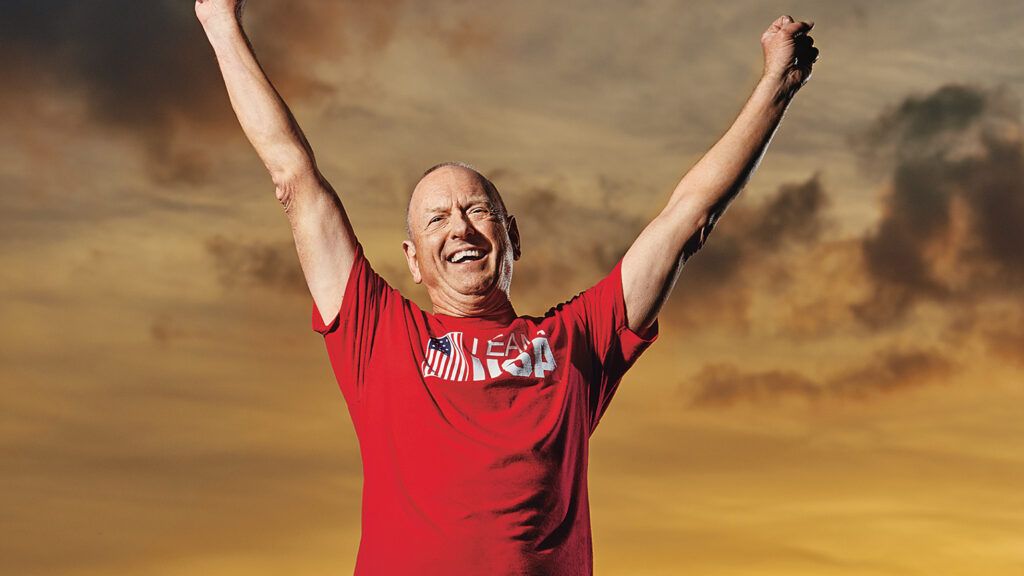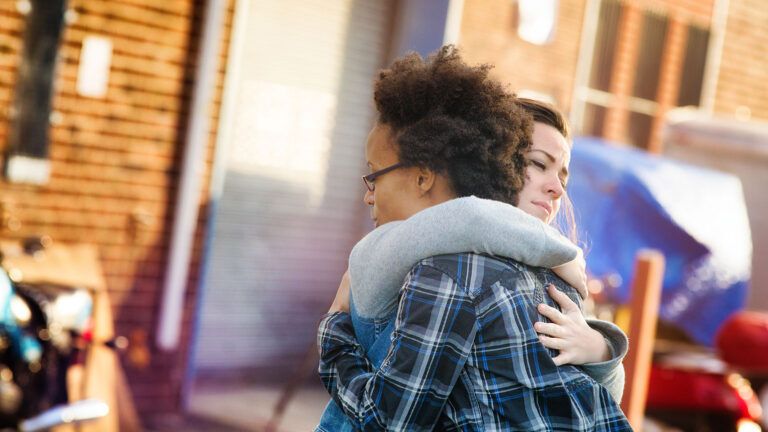My wife, Posy, and I made our way around a local track one spring day in 2008. Slowly. I was still rehabbing the leg I’d injured running. That’s when the idea came to me.
“You know, this October marks forty years since the Mexico City Olympics,” I said. “What if I organized a reunion? What do you think?”
Posy stopped and, for the longest time, just stared at me. “Tom, you have so much going on right now, with your treatments and all,” she said. “Please, can you not do this?”
She had a point. When I’d turned 65 the previous year, it seemed as if my body had started falling apart. “I guess my warranty expired,” I’d joked to Posy.
BROWSE OUR SELECTION OF BOOKS ABOUT POSITIVE THINKING
First, I’d found myself getting winded climbing stairs to my office. Turned out, there was a problem with the nerve impulses in my heart—explaining my miserable performance in the 1,500-meter race at the 2007 National Senior Games—so the doctors had put in a pacemaker. Three months later, training to get back into racing shape, I’d torn a tendon in my left leg.
A few weeks after that, I’d been diagnosed with prostate cancer and immediately elected to have radiation seed treatment. I’m generally a positive guy, but it was hard not to worry. What if this was it? What if I’d reached the end of the road?
Maybe that was why I’d been looking back on my life, thinking about all the high points. Like Mexico City. Competing in the Olympics had been the most unlikely of accomplishments for me.
I didn’t grow up dreaming of being an athlete, let alone an Olympian. I’d gone to West Point to become a soldier. I majored in engineering, figuring my Army career would be in the Corps of Engineers. The main reason I went out for sports was the food. Making the triathlon team was my meal ticket to the athletic tables in the dining hall. No one was more surprised than I was when I started winning medals.
I graduated and went to Ranger and Airborne schools. The Mexico City Olympic Games were two years away. One of the events would be modern pentathlon—running, swimming, shooting, horseback riding and fencing. Those last two weren’t exactly in my skill set, but if I could devote time to training, I thought I might have a chance. The Army agreed and arranged for training opportunities. Suddenly making the Olympics was all I thought about. Well, that and Posy. We’d met during college and, after graduation, kept up a regular correspondence.
Everything was going great. Then in June of 1968, I pulled a leg muscle while fencing. So badly that I landed in the hospital, my leg in traction. The doctor said it would take four to six weeks to heal. The Olympic trials were in mid-August.
I could feel my chance for the Games slipping away. I lay there in my hospital bed, feeling sorry for myself. Then I looked around the ward. The other guys had been wounded in action in Vietnam. They were determined to get back to their units. What did I have to complain about? Get off your butt, I told myself, and get busy training!
How to train from my hospital bed? That’s where my engineering skills came in. I talked a nurse into rigging up a pulley system for me to practice my swimming stroke. My pentathlon teammates hung a golf ball from my traction frame so I could pick at it with my fencing sword. Whenever nurses weren’t looking, I snuck a five-pound weight out of my traction bag and pretended I was raising and lowering a pistol. I squeezed my crutch between my knees to mimic horse jumping.
The wounded soldiers took notice and cheered me on: “Go get ’em, Lough!” That gave me extra motivation.
When I wasn’t training physically, I was training mentally. Reading inspirational books like Norman Vincent Peale’s The Power of Positive Thinking. Praying. I was discharged from the hospital ahead of schedule.
You hear about athletes being in a zone. That’s what it was like for me at the trials. I could hardly believe I made the U.S. Olympic team! The encouragement from the wounded soldiers. The days of practicing and praying. It had all paid off and showed me I could do anything if I set my mind to it.
At the Olympics, I finished in the top half of the field. Our pentathlon team came in fourth, barely out of the medals. What an experience to share the rarefied air with people I’d read about in Sports Illustrated, people like Bob Beamon and Jim Ryun! After the Games, I went back to the Army hospital to thank the patients for inspiring me.
I did a tour in Vietnam and survived being shot down. Then I came home and married Posy, and we began our family. After 10 years in the Army, I moved on to teaching high school science. I earned master’s degrees in geodetic science and physics and, finally, a Ph.D. in educational psychology. In 1997 I took a job as a professor at Murray State University in Kentucky, teaching future science teachers.
Years later, at age 65, I heard the National Senior Games would be held in Louisville. Besides jogging, I didn’t do much athletic. But I had to try.
Halfway through the 1,500 meters, I was gasping for breath. Even worse than going up the stairs to my office. I finished last. Well off my usual pace. That August I got the pacemaker. Problem solved, or so I thought.
Instead came the torn tendon. Then cancer. What I needed was a goal, something to set my mind to, like those days in the Army hospital, the last time my body had failed me.
I thought of the Olympics. A reunion with all the other American athletes. I wondered if they too were looking back and thinking about moments of youthful glory.
So I’d blurted out my idea to Posy while we were walking on the track that spring day. “It would be great to see everyone again.”
“Okay,” Posy finally said. “I can see you feel led to do this for some reason.”
I started making calls to 1968 teammates about the reunion idea. The response was hesitant. Many said, “I don’t know anyone besides those in my sport.” I kept talking about how it would be good for everyone to get back together. Eventually, others offered to make calls for their sports and we reconnected with additional teammates.
My leg healed; my strength returned. The cancer treatment was successful. Every day a few more names trickled in for the reunion. I felt good enough to race in the 2008 Kentucky Senior Games. I won the 1,500 and qualified for the nationals.
In October, 40 members of the 1968 U.S. Olympic team and their families met in St. Louis for our first reunion. It was wonderful renewing old friendships and reliving our time in the spotlight.
The last day, a Sunday, I’d scheduled an optional chapel service. Jim Ryun and Madeline Manning Mims, both renowned runners, led the worship. Jim talked about his disappointment at finishing second in the 1,500 in 1968 and then falling in the next Olympics.
“I was bitter for a long time,” he said. “But I learned there was only one way to find healing. I had to turn my frustrations over to God.”
One after another, Olympians shared how they too had grown from putting their problems, their lives, in God’s hands.
A power like nothing I’d ever felt before filled the room, as if all of us were being embraced somehow.
I’d always thought I had become an Olympian by setting goals and making incremental progress to achieve them. A pattern I’d repeated for the next 40 years—even for organizing this reunion. But now I could see how God had been there, an invisible hand leading me every step of the way. Through traction to the Olympic trials. Through Army combat to a career in education. Through heart trouble and cancer. Through to the future.
“Now I know why you had to do this,” Posy said to me. “I’m so glad you followed what God was leading you to do.” Before we Olympians left the reunion, we set up a prayer chain for all of us to continue supporting each other.
I trained hard for the 2009 National Senior Games, but I wasn’t so focused on my times anymore. I didn’t dream about edging out a competitor at the finish line. I found joy in the simple act of running and just tried to improve a little every time out on the track.
The day of the race, I was completely relaxed. I marveled at the athletes who were 15 or 20 years older than me, competing for the love of their sport. Wasn’t that the Olympic ideal?
Then it was time. I said a quick prayer to do my best. The starting gun fired and I was off, legs churning.
I finished ninth out of 26 runners, my time close to what I’d hoped to achieve. I was thrilled, not only at where I’d finished, but at how I’d gotten there.
Posy met me at the finish line. “I have a new goal,” I said. “To still be out here when I’m eighty.”
Now, at 75, I’m looking forward to running the 800- and 1,500-meter races at the 2017 National Senior Games in Birmingham, Alabama, and being more inspired by the athletes around me than by my own accomplishments. I’m still a big believer in incremental progress. And I’m an even bigger believer in following God’s lead. How else would I have found myself now learning music composition and computer coding?
Maybe I can create a virtual reality project for the fiftieth anniversary reunion of our 1968 team next year. I wonder what Posy thinks.
For more inspiring stories, subscribe to Guideposts magazine.




